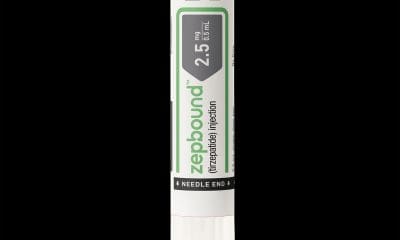Health
FDA Investigating Cinnamon Apple Products for Elevated Blood Lead Levels


Reports of Illness in Multiple States
The Food and Drug Administration (FDA) is currently investigating cinnamon apple puree and applesauce products following reports of elevated blood lead levels in at least 34 individuals. Residents in over 20 states have reported illness after consuming cinnamon apple products from three brands: WanaBana, Weis, and Schnucks. These products, manufactured in Ecuador, have since been recalled.
Lead Levels Far Exceed FDA Guidelines
Recent screenings conducted by the FDA and other state partners have revealed lead levels in at least one product that are nearly 200 times higher than the FDA guidelines. The FDA's leading hypothesis is that the cinnamon used in these recalled pouches is the likely source of contamination. However, the FDA has not been able to collect and test samples of the cinnamon used in the recalled products. The FDA is currently working with Ecuadorian authorities to investigate the source of the cinnamon and is also reviewing cinnamon from other countries as a precautionary measure.
Recall and Collaboration with FDA
WanaBana USA, one of the brands involved, has initiated a voluntary recall of all batches and is working closely with the FDA to investigate the source of the contamination. The company is dedicated to ensuring the safety of its products and the well-being of its consumers. WanaBana USA is collaborating with the FDA to provide consumers with updated information regarding the product recall.
Other Products Under Investigation
The FDA has also sampled other products from the three brands under investigation. However, the puree pouches that did not contain cinnamon have not shown higher levels of lead and were not included in the recall.
Health Risks and Vulnerability in Children
Exposure to lead can cause various health issues in adults, including headaches, stomach cramps, constipation, muscle/joint pain, and poor sleep. The FDA has cautioned that most children do not exhibit obvious symptoms of lead exposure. The Centers for Disease Control and Prevention has stated that children are more vulnerable to lead toxicity because they tend to absorb it more than adults.


Hey there! I’m William Cooper, your go-to guy for all things travel at iMagazineDaily. I’m 39, living the dream in Oshkosh, WI, and I can’t get enough of exploring every corner of this amazing world. I’ve got this awesome gig where I blog about my travel escapades, and let me tell you, it’s never a dull moment! When I’m not busy typing away or editing some cool content, I’m out there in the city, living it up and tasting every crazy delicious thing I can find. Join me on this wild ride of adventures and stories, right here at iMagazineDaily. Trust me, it’s going to be a blast! 🌍✈️🍴









